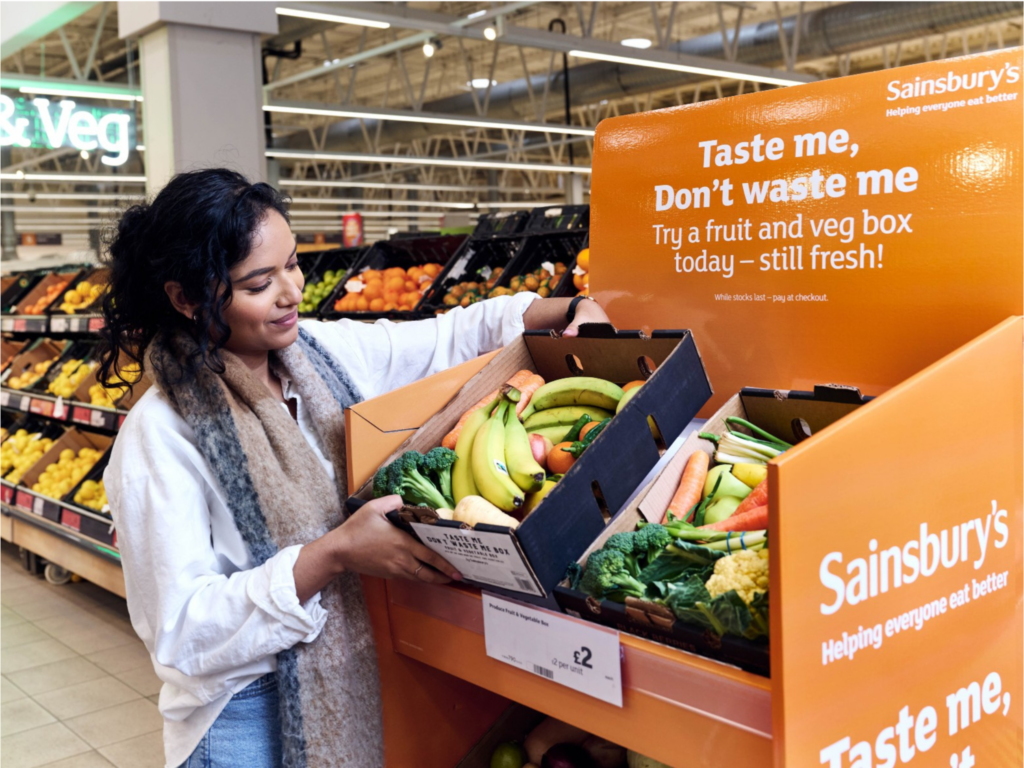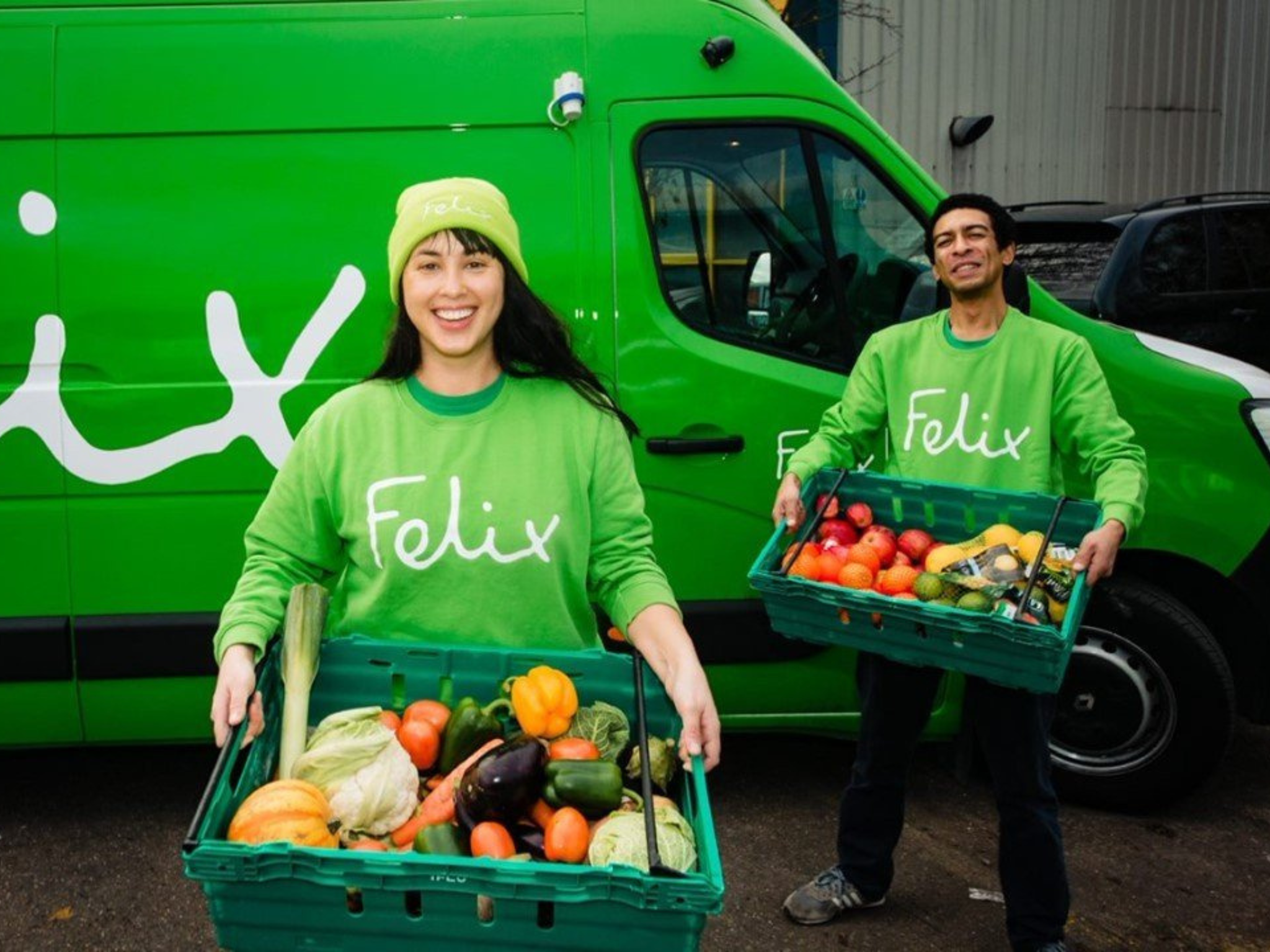UK Announces £15M Fund to Distribute Surplus Food from Farms & Tackle Waste
4 Mins Read
The UK government has set up a new £15M fund to save food waste from the farm gate and redistribute it to those experiencing hunger.
After six years of campaigning and multiple promises from politicians, the UK has finally established a fund to tackle food waste and hunger.
The £15M Farm Gate Food Waste Fund would hand grants starting from £20,000 to food redistribution non-profits in England to reduce the massive amount of food waste created on the farm level (especially around Christmas) by delivering it to homeless shelters, food banks and charities.
Government data suggests that about 300,000 tonnes of edible food is either wasted or converted to animal feed before leaving farms every year in the UK. At the same time, around 11% of Brits go hungry. The fund aims to prevent around 27,000 tonnes – equivalent to 60 million meals – from going to waste and instead help feed those in need.
“Nobody wants to see good food go to waste – especially farmers who work hard to put food on family tables across the country,” said Mary Creagh, the circular economy minister under the Labour administration. “Our new fund will help the charitable sector to work more closely with farmers, helping to find new opportunities to get their world-leading produce to those most in need within our communities.”
The culmination of a multi-year effort

The food waste pledge has been a long time coming. It was first promised by Michael Gove in 2018 (who was the environment secretary), and again by former prime minister Rishi Sunak this year.
But it had been put on hold until after the general election, which saw Sunak’s Conservative Party lose power to the Labour Party under Kier Starmer.
Calls to revive the plan were revved up in October, when hundreds of charities and the Michelin-starred chef Tom Kerridge urged chancellor Rachel Reeves to put the fund back on the budget’s agenda in an open letter.
Now, the goal has finally been realised. Charities often lack the resources to collect food from farms and deliver it to those in need, but the fund will now allow them to buy new equipment (like balers or hoppers) to allow bulky food items to be processed into parcels, and technology that can help donors and charities work more closely. The financing can also help supply more training to staff to enhance their IT and food safety skills.
The full eligibility criteria for applicants to the fund, as well as details on when it will actually open, are now due in the new year.
“We look forward to acting quickly with the government, the charity sector, and farmers to maximise the impact of this initiative during British growing season, ensuring surplus food reaches as many people as possible,” Charlotte Hill and Kris Gibbon-Walsh, CEOs of food waste charities The Felix Project and FareShare, respectively, said in a joint statement.
“We have a proven model which funds farmers to redistribute their unsold food, which means that together, we can take meaningful steps toward achieving a zero-waste Britain,” they added.
Food waste becomes a priority in the UK

The Department for Environment, Food & Rural Affairs (Defra) noted that the move supports its efforts towards the Courtauld Commitment, initiated by environmental non-profit WRAP to cut food waste in half by 2030.
According to the organisation, a quarter of all food produced in the UK goes to waste annually, contributing to 4.5% of the UK’s greenhouse gas emissions. “Every year, the amount of surplus food being redistributed is going up, but sadly the need is also increasing so this gives a much-needed boost,” said WRAP CEO Harriet Lamb.
“This is welcome support for farmers and redistribution organisations ensuring more quality food is rescued and can support more people and communities, while reducing the environmental impact of food waste on climate change,” she added.
The £15M pledge comes amid a flurry of other commitments to tackle food waste in the UK. WRAP and IGD, which launched the UK Food Waste Reduction Roadmap, underscored the importance of going beyond current food waste targets to deliver the UK’s net-zero goal for 2050 in a recent report. The two organisations are working with industry members to develop a food waste reduction strategy, which will include mandatory food waste reporting and address date labelling and pre-packaging of fresh produce.
On the retail level, Tesco, Sainsbury’s and M&S were all co-signees of a letter sent to Steve Reed, the UK’s environment secretary, calling for mandatory food waste disclosure in the industry. They were also part of a group that launched Alliance Food Sourcing, a new food redistribution initiative to identify thousands of tonnes of surplus food and distribute it to those in need.



